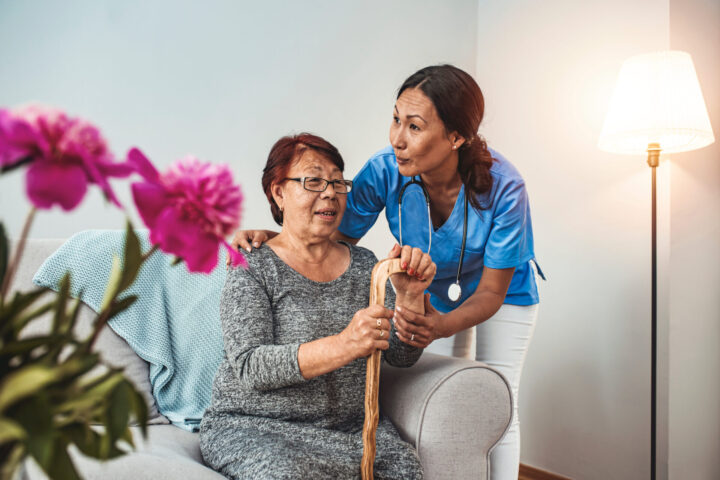A quarter (27%) of people said they would be carers by age 67, which will be the age at which people will qualify for the State Pension in April next year, analysis by Phoenix Insights found.
The report from Phoenix Group’s longevity think tank found that nearly half (47%) of carers had no private pension savings between ages 60 and 65.
Among those with pension savings, carers had 17% less than the UK average, meaning a shortfall of about £37,000.
Patrick Thomson, head of research analysis and policy at Phoenix Insights, said: “Over the last 30 years we’ve seen major changes in the labour market, with higher overall employment rates, particularly for women.
“Despite this there are still a large number of people economically inactive who are not in work for caring, health or other reasons – hampering their ability to save for their retirement.
“As our population ages, a rapidly growing number are, often unexpectedly and earlier than they anticipated, caring for loved ones across multiple generations.”
Thomson added: “This can put them at particular risk of falling out of paid work and becoming financially vulnerable in later life.”
Previous Phoenix Group research found 45% of unpaid carers struggled with day-to-day living costs due to being out of work.
The research also found only 44% of people felt clear about their life over the next five years, with just 31% confident about the next 15 years.
Sara Thompson, chief people officer at Phoenix Group, said: “People shouldn’t have to choose between caring for a loved one or going to work, but many have to do so with an estimated 2.6 million people leaving the workplace to care for a relative or loved one which is having a negative impact on their ability to save for their private pension.
“It’s important for businesses to retain valuable employees and do what they can to support colleagues with caring responsibilities to stay in work for as long as they need or want to, through offering flexible working arrangements and providing paid carers leave – giving workers the ability to care for a loved one but not at the expense of their own financial futures.”

















